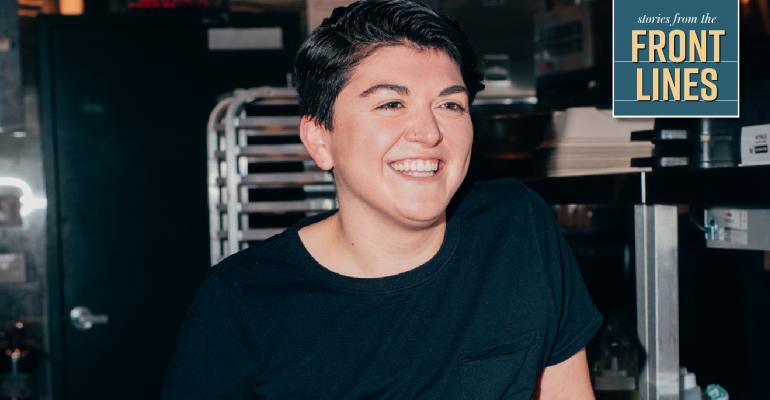Taylor Lanzet leads supply chain and sustainability strategy for Dig Food Group, which operates 30 fast-casual restaurants in New York, Philadelphia and Boston. As part of our Stories from the Front Lines series, Lanzet outlines how Dig is adapting its business model amid coronavirus.
One moment, I was crop planning with our 130 farmers. The next moment, we shut our seed catalogs. I’ve built my career on being a “yes” person. Yes, I’ll buy your excess broccoli; we sell 18,000 pounds a week. Yes, I can take your wrinkled blueberries; we’ll make cobbler for our restaurants. Yes, I’ll guarantee that I’ll buy your crop six months from now.
Then the crisis hit. Suddenly, I wasn’t sure what I could buy for June.
I scrambled to buy supplies for our restaurants. I canceled purchase orders with our farmers (something that killed me to do). I fumbled to give projections to our partners. I felt … helpless. I felt like I couldn’t do enough for anyone.
I started calling our network of non-profit partners. Pre-crisis, we donated 14,000 pounds of produce and cooked meals to organizations across our cities each month. I wanted to be helpful, to do something meaningful.
People still needed to eat. We donated more food to the partners we worked with — 75,000 meals in the first week. Then more people started emailing us: hospitals, senior centers, homeless shelters, food banks. We launched Dig Feeds. Now, anyone who needs meals can text DIGFEEDS to 80519.
 Our farmers and chefs who turned thousands of pounds of produce into meals for our restaurants are now providing meals to people who need them. We’ve fed the New York University COVID unit, the Sylvia Rivera Food Pantry, Mass General Hospital in Boston, the Broad Street Ministry in Philadelphia and many more.
Our farmers and chefs who turned thousands of pounds of produce into meals for our restaurants are now providing meals to people who need them. We’ve fed the New York University COVID unit, the Sylvia Rivera Food Pantry, Mass General Hospital in Boston, the Broad Street Ministry in Philadelphia and many more.
We also found new ways to support our farmers and bring vegetables to more people. I’ve always worked with independent farmers to provide stability and long-term viability, supported beginning farmers who are committed to a career in agriculture, and found diverse and marginalized suppliers who deserve a seat at the table. We created the Dig Acres Farm Box, which brings together produce and groceries from farmers and suppliers we love and provides them with greater direct distribution to our guests.
This has been the hardest month of my career. It’s still unclear how the hospitality and agriculture industries I love so much will find a new normal.
Now, as the fundamentals of that food system are challenged, maybe we have a chance to build it again, but better.





